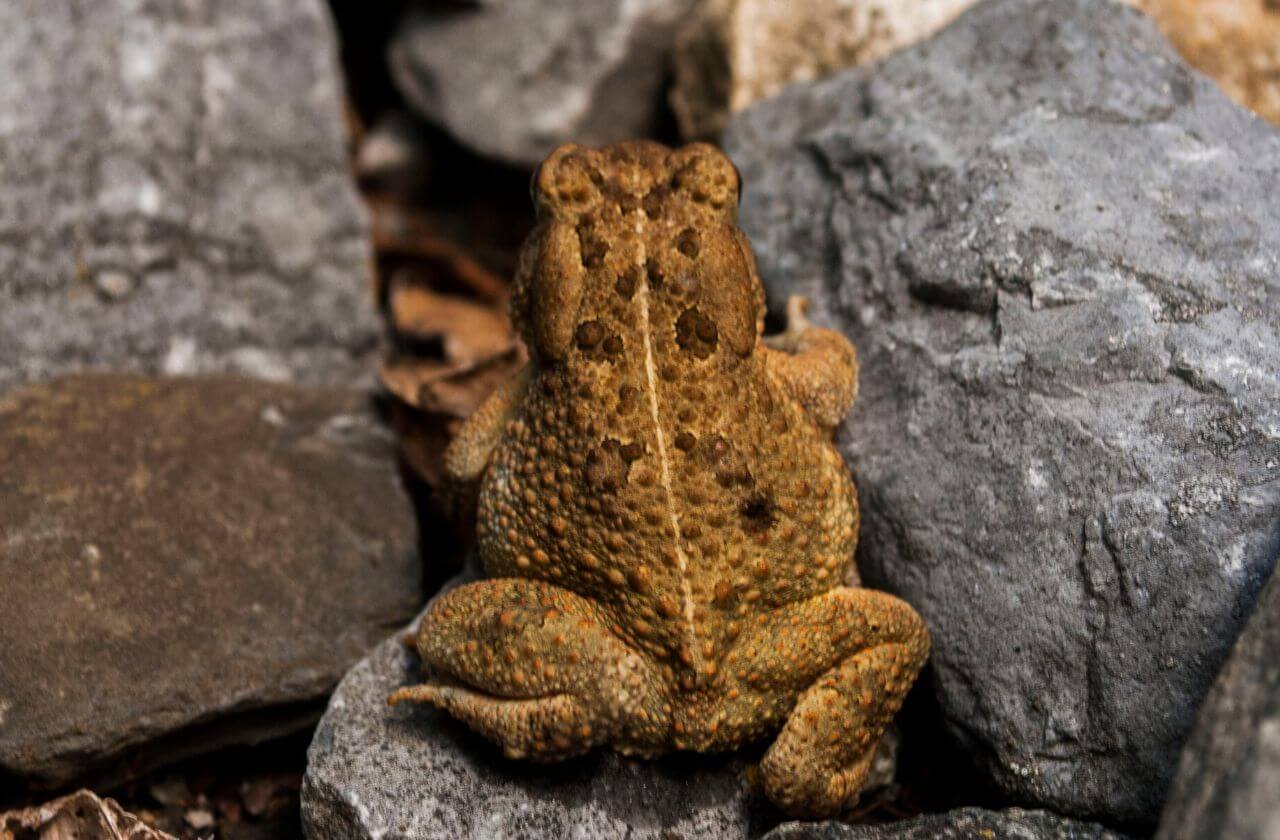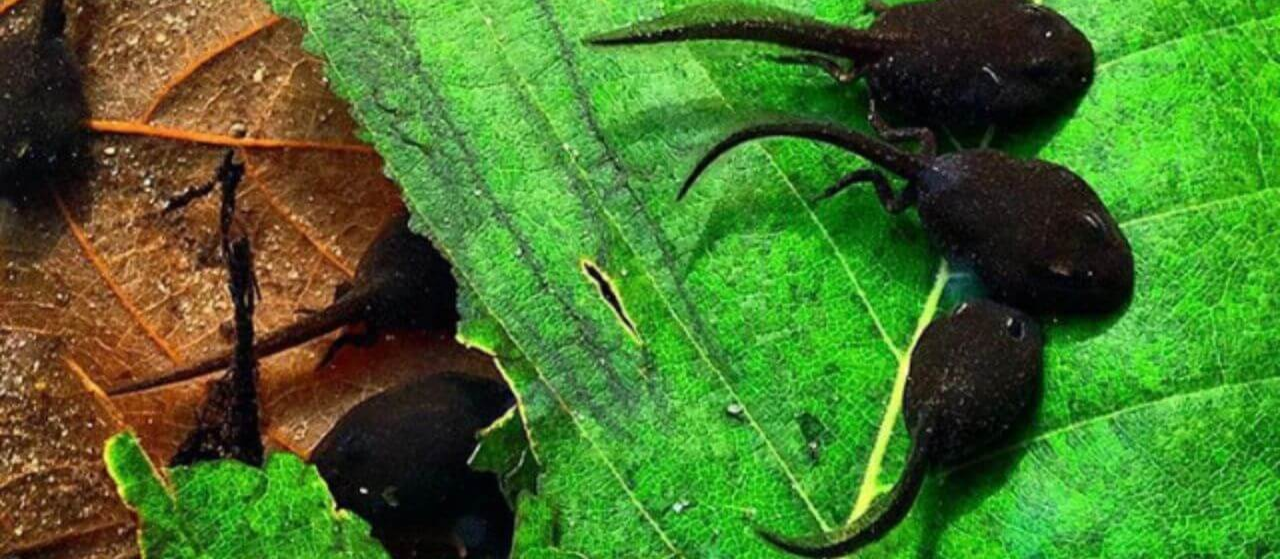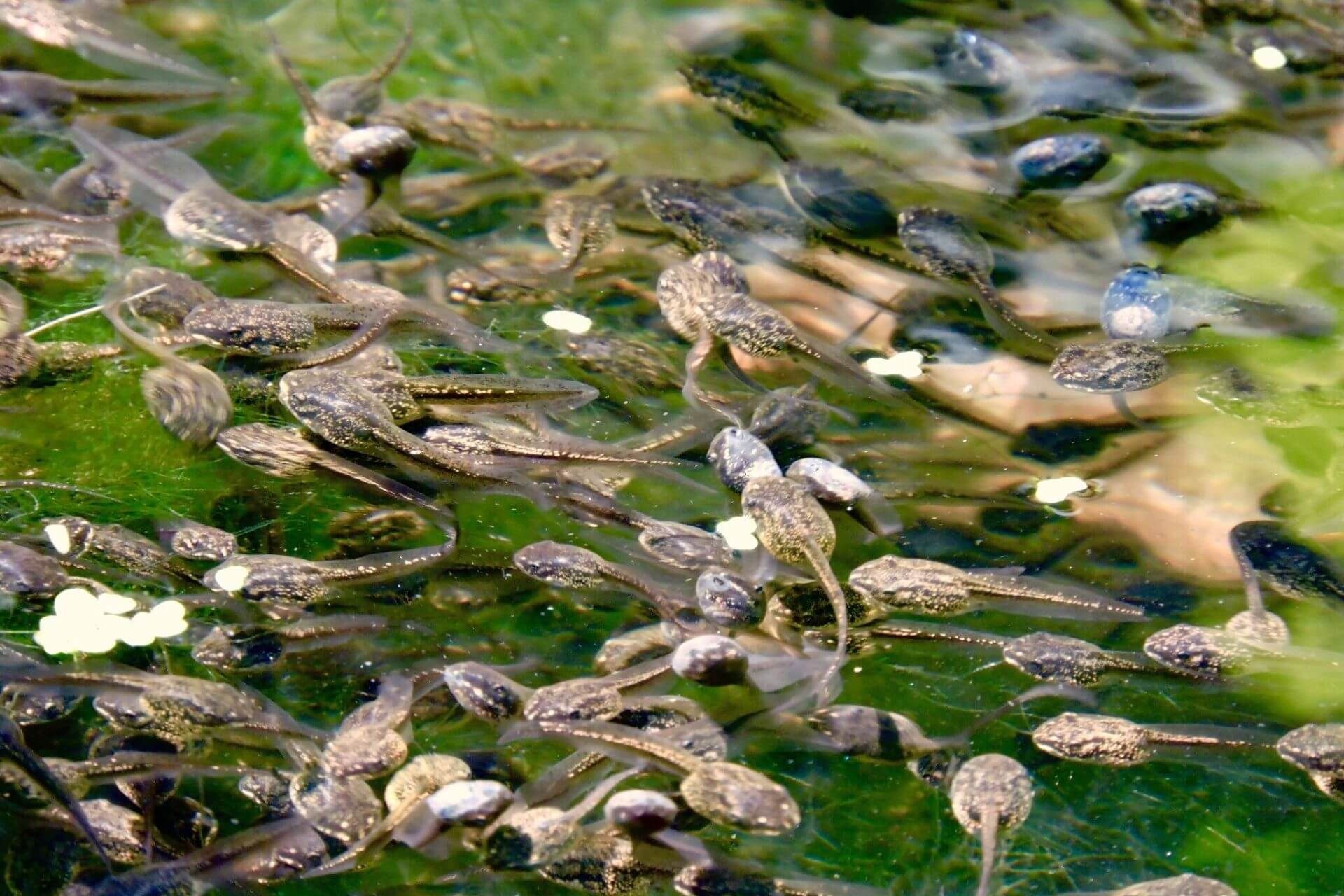Unlike a reptile, amphibians lack scales and instead have skin. The skin of an amphibian is often permeable, allowing moisture and oxygen to be gained or lost. This feature is why many amphibians can seemingly breathe underwater and are commonly referred to as environmental indicators, meaning their health or abundance is often a sign of a healthy or degradation ecosystem. Their skin not only absorbs moisture and oxygen, but it also absorbs pollutants when they are present. If we see a sudden loss of amphibians in a region, it may be a sign that toxins have moved into the environment or conditions are no longer healthy. Amphibians often have mucous glands which secrete a substance to keep their skin moist when they are away from wet dirt or a body of water.
Amazing Amphibians | What Makes an Amphibian an Amphibian | edZOOcating
Sarah Skebba • May 15, 2020
Amphibians are perhaps best known for their wet, slimy appearance and some kind of metamorphosis. The visual of a tadpole slowly growing legs and turning into a ribbiting frog may come to mind, or a salamander covered in dirt crawling from a muddy burrow. Most amphibians live near some form of water, often freshwater, which many depend on for moisture and reproduction. There are more than 8,000 species of amphibians, most of which are frogs but also include toads, salamanders, newts, and caecillians (a group of snake-like animals who mostly live underground). Though a limbless caecillian and a four-legged toad may not seem like they’d have a lot in common, you’d be surprised.
Cold-Blooded
Just like our reptile friends, amphibians are cold-blooded, or ectothermic. They are not able to regulate their body temperature internally, meaning they are subject to whatever the weather is doing in their environment. This can cause a lot of challenges for those found in extreme climates and many amphibians will seek shelter underground until conditions are more favorable.
Skin
Vertebrate
Like you and I, amphibians have a backbone. However, unlike us, these bones are often hollow and lightweight. Almost all amphibians, with the exception of the caecillian and a few salamanders, have four limbs in their adult form. The size, shape, and muscle capacity of the legs depend on the species. For example, a small salamander who specializes in digging will need much different arms than a frog who specializes in jumping great distances.
Metamorphosis
Amphibians are a highly adaptable yet incredibly sensitive group of animals. Though they are not the same, reptiles and amphibians are often studied under the same scientific grouping called herpetology. Herpetologists rely on amphibians to better understand the health of an environment and the best ways to restore it. Learn all about the incredible adaptations and bizarre behaviors of these animals on our Amphibians page!
Spring days become longer, hotter. Bullfrog stands guard while his tadpoles squirm through a crowded puddle, bumping bodies and breathing the last bit of oxygen. For weeks, Bullfrog protected his tadpoles from perilous predators, all while their puddle home evaporated. He fended off hungry herons, and the puddle shrank. He fended off famished fish, and the puddle shrank. He even fended off other ferocious frogs, and still, the puddle shrank. Most frogs leave their eggs before they become tadpoles, but not Bullfrog. He cares for his tadpoles and the tadpoles of his neighbors. His instincts tell him to save them. Positioning himself between puddle and pond, he smushes and pushes mud to create a narrow path–a tadpole water slide. Slowly at first, then all at once, hundreds of tadpoles slip into the pond. Darting around, they replenish their oxygen and feast on water bugs making this pond their new home.





